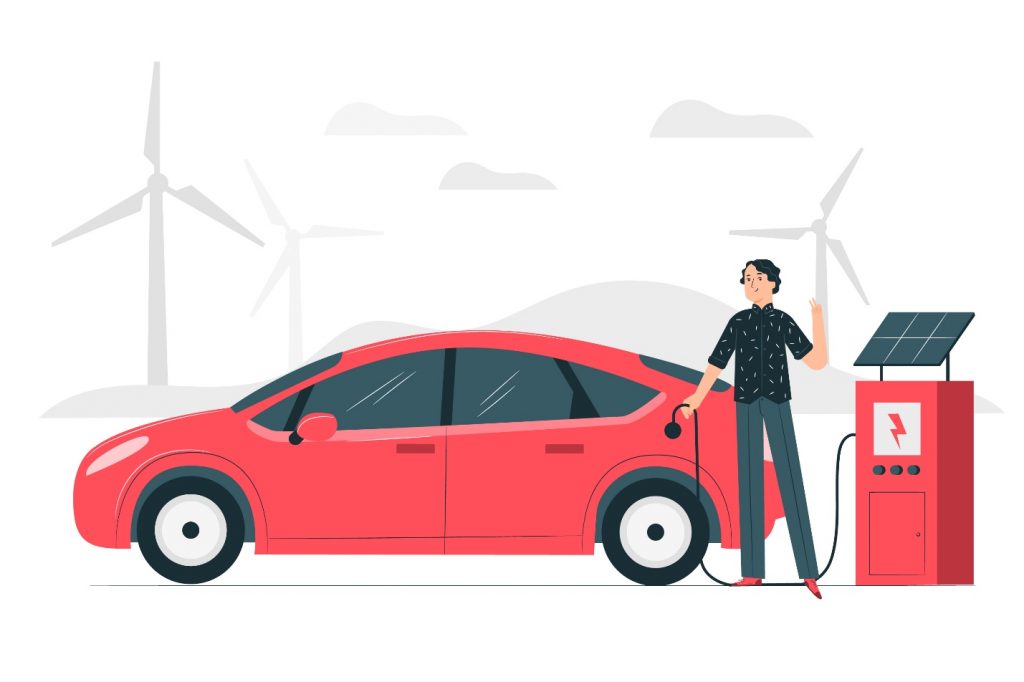Electric Vehicles (EVs) are becoming more popular, making EV insurance essential. Unlike traditional car insurance, it covers unique components like the battery, charging equipment, and advanced technology.
This ensures both the vehicle and finances are protected. EV insurance also provides peace of mind by covering potential repair or replacement costs.
In this blog, we’ll explore the latest trends in electric car insurance, including key developments, emerging models, and coverage options that are becoming essential for EV owners.
Understanding the basics of electric car insurance
Electric car insurance is a specialised coverage designed to protect EVs and their owners. It provides the same basic coverage as traditional car insurance, with added protection for their unique components.
Additionally, like regular insurance, it offers the convenience of car insurance renewal online. EVs have unique factors that set them apart from traditional cars in terms of insurance, with key considerations such as higher repair costs for specialised parts influencing coverage needs.
Key factors, such as the cost of replacement parts and higher repair expenses for specialised components, can significantly impact your insurance needs.
What sets electric car insurance apart?
Although electric car insurance and traditional car insurance may seem similar, they differ considerably due to the unique build of EVs. The following comparison outlines the key differences:
| Coverage Type | Electric Car Insurance | Traditional Car Insurance |
| Liability Coverage | Includes coverage for specialised components unique to EVs, like charging equipment in some cases. | Standard liability coverage for traditional vehicles. |
| Collision Coverage | Often includes battery protection in case of collision-related damage. | No coverage for electric-specific components like the battery. |
| Comprehensive Coverage | Covers damage to advanced technology systems, such as autonomous features and infotainment systems. | Covers basic components but may not include advanced technology features in some policies. |
The advanced technology and specialised parts in electric vehicles require policies that are more tailored to provide the right protection. As EV usage increases, insurers are increasingly offering more specialised coverage options to address the specific needs of electric car owners.
Key trends in electric car insurance for 2025
Multiple trends are shaping how insurers tailor coverage for electric vehicles. Let’s explore some of the most significant ones to watch in 2025:
1. Increased focus on battery coverage
The key difference between traditional cars and electric vehicles is the battery, with replacement costs between Rs 1,50,000 to Rs 3,00,000. Many insurers offer specialised battery protection to cover these costs.
2. Emerging insurance models for electric cars
Insurers are introducing Usage-Based Insurance (UBI), where premiums are based on driving habits and mileage.
Telematics devices or apps track driving patterns, such as speed and braking, and adjust premiums to reward responsible and low-mileage drivers with discounts. This also offers flexible insurance options for EV owners.
3. Pay-as-you-go insurance
This model lets EV owners pay premiums based on usage, offering flexibility and cost savings. With lower maintenance costs, EVs provide a personalised option, adjusting premiums based on mileage and driving habits.
4. Green incentives and eco-friendly policies
Insurers offer green discounts to EV owners, reducing premiums for eco-friendly vehicles. Some also provide incentives for using renewable energy to charge, like further premium reductions, free breakdown cover, and promoting sustainable driving.
5. Advanced coverage for EV technology and features
Electric cars feature advanced technology like autonomous systems and infotainment. In 2025, insurers are covering components such as Lane Keeping Assistance (LKA) and Autonomous Emergency Braking (AEB), ensuring protection for high-tech parts.
6. Flexible EV repair networks partnerships
The demand for EV-specialised repair shops is growing, prompting insurers to partner with certified repair networks. These networks offer access to qualified professionals, ensuring quality repairs and coverage for all vehicle parts, including high-tech components.
7. Comprehensive EV-specific coverage
In 2025, insurers are expected to offer comprehensive EV policies covering battery replacement, charging equipment, and roadside assistance, ensuring protection for all components and reducing unexpected expenses.
8. The role of artificial intelligence in EV insurance
AI can assess driving habits and automatically adjust premiums to more personalised rates. Machine learning algorithms will enable insurers to predict repair needs, providing proactive solutions that help reduce costs and enhance the customer experience.
As sustainability gains popularity, understanding electric car insurance is increasingly important. Insurance options are evolving to meet the needs of eco-conscious drivers, offering more tailored protection.
Owners can protect their vehicles by staying informed about the latest developments. This allows for better coverage while benefiting from cost savings and more flexible policies, ensuring electric car owners are well-supported in an ever-changing market.
